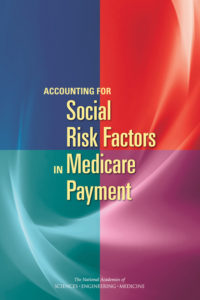SNAP Joins Others in Letter to PA Senators
SNAP was among 27 Pennsylvania health care organizations to send a joint letter to senators Bob Casey and Pat Toomey pointing out aspects of the House-passed American Health Care Act that could jeopardize access to care for medically vulnerable Pennsylvanians.
 Among the issues addressed in the letter are how the House-passed proposal would detract from the role of Medicaid in fighting the state’s opioid crisis; the proposed reduction in tax credits to help purchase health insurance; the challenge posed by a per capita approach to Medicaid financing; the potential loss of health care jobs; the likelihood of large numbers of Pennsylvanians losing their health insurance and state Medicaid costs rising significantly; and the erosion of consumer protections.
Among the issues addressed in the letter are how the House-passed proposal would detract from the role of Medicaid in fighting the state’s opioid crisis; the proposed reduction in tax credits to help purchase health insurance; the challenge posed by a per capita approach to Medicaid financing; the potential loss of health care jobs; the likelihood of large numbers of Pennsylvanians losing their health insurance and state Medicaid costs rising significantly; and the erosion of consumer protections.
See the complete letter here.
 Included in this edition are articles on new criteria for Medicaid coverage of high-cost hepatitis C drugs and the release of a draft of the state’s proposed Medicaid quality strategy; an update on Community HealthChoices, Pennsylvania’s new program of Medicaid managed long-term services and supports; an overview of Medicaid-covered behavioral health services; a summary of recent federal proposals with implications for the state’s Medicaid program; and a report on the nomination of Teresa Miller to lead the new Department of Health and Human Services that Governor Wolf has proposed establishing.
Included in this edition are articles on new criteria for Medicaid coverage of high-cost hepatitis C drugs and the release of a draft of the state’s proposed Medicaid quality strategy; an update on Community HealthChoices, Pennsylvania’s new program of Medicaid managed long-term services and supports; an overview of Medicaid-covered behavioral health services; a summary of recent federal proposals with implications for the state’s Medicaid program; and a report on the nomination of Teresa Miller to lead the new Department of Health and Human Services that Governor Wolf has proposed establishing.
 , the National Academies of Sciences, Engineering, and Medicine addresses the question of what social risk factors might be worth considering in Medicare value-based payment programs and how those risk factors might be reflected in value-based payments.
, the National Academies of Sciences, Engineering, and Medicine addresses the question of what social risk factors might be worth considering in Medicare value-based payment programs and how those risk factors might be reflected in value-based payments. Under the new criteria, patients with lower scores of severity of hepatitis C will become eligible for treatment. Previously, Medicaid patients were required to show more advanced signs of illness before the medicine was provided to them.
Under the new criteria, patients with lower scores of severity of hepatitis C will become eligible for treatment. Previously, Medicaid patients were required to show more advanced signs of illness before the medicine was provided to them.
 Governor Tom Wolf offered such a proposal in his FY 2018 budget message and the Pennsylvania General Assembly is now weighing the merits of this proposal.
Governor Tom Wolf offered such a proposal in his FY 2018 budget message and the Pennsylvania General Assembly is now weighing the merits of this proposal. According to the report, hospital net patient revenue increased in FY 2016, accounts receivable are being paid faster, operating and total margins rose, and uncompensated care declined.
According to the report, hospital net patient revenue increased in FY 2016, accounts receivable are being paid faster, operating and total margins rose, and uncompensated care declined.